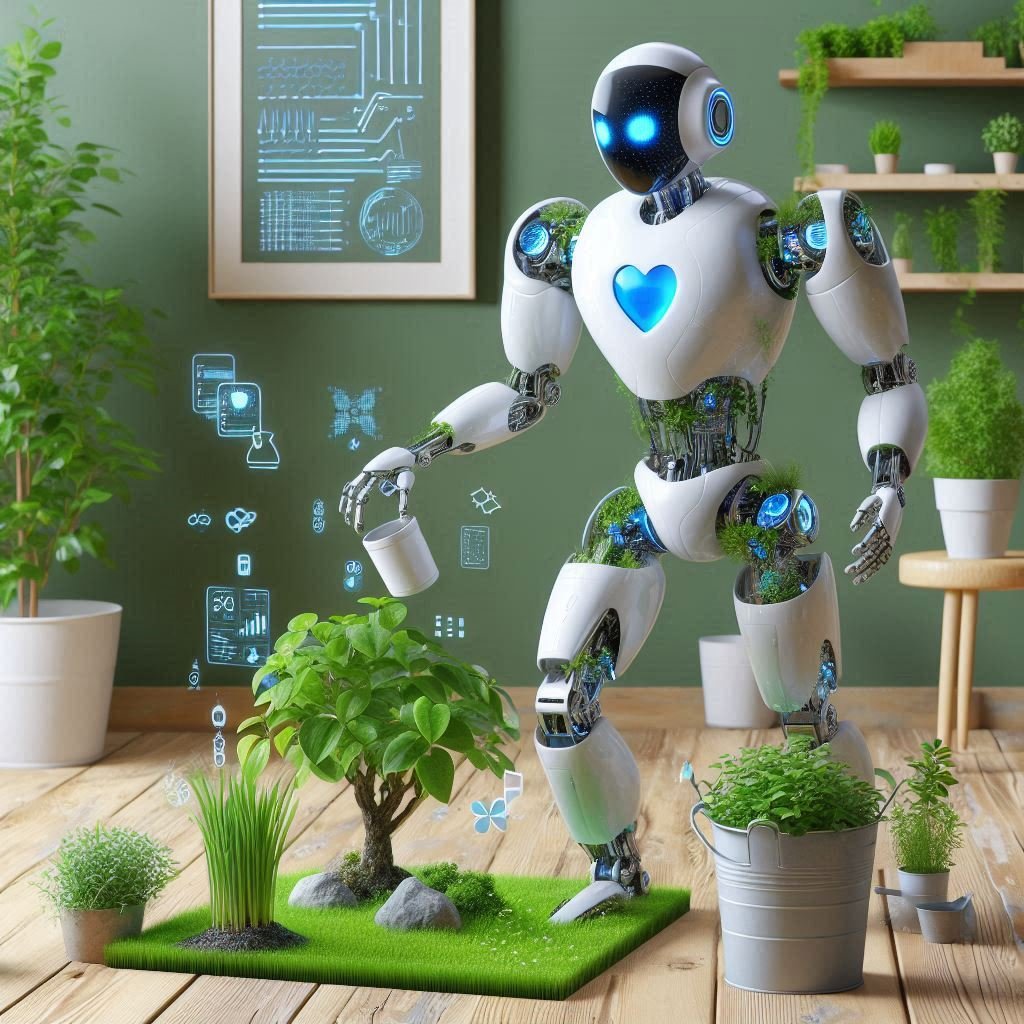
The Future of AI: From Tesla Robots to a Greener Planet
Share
Artificial intelligence has taken the world by storm, with its impact being felt across multiple industries. One of the companies at the forefront of AI development is Tesla, not only famous for its electric vehicles but also for its ambitious robotics projects. Tesla's robots, designed to help humans with everyday tasks, offer a glimpse of a future where AI plays a central role in our lives, reshaping how we work, live, and interact with the world.
Tesla’s Humanoid Robots: Revolutionizing Automation
Tesla's foray into AI-driven robots became a hot topic with the announcement of the Tesla Bot (also known as Optimus), a humanoid robot capable of performing a wide range of tasks. This AI-powered robot is designed to take over mundane, repetitive, and even dangerous jobs, allowing humans to focus on more creative and meaningful activities. From lifting heavy objects to assisting in warehouses, Tesla’s robots aim to reduce the burden of physical labor.
By leveraging the same AI systems used in Tesla’s self-driving cars, the company is building robots that can understand the environment, make decisions, and perform tasks autonomously. The potential applications are endless—robots could soon be assisting with home chores, providing elderly care, or handling logistics in industries that depend on fast, accurate operations. With AI progressing so rapidly, Tesla’s robots are a significant milestone in automation, which could dramatically boost productivity while enhancing the quality of human life.

Harnessing AI for a Better Tomorrow
Beyond Tesla’s robots, the larger picture of AI’s future holds tremendous promise. AI is already transforming industries such as healthcare, finance, and transportation by improving efficiency and reducing human error. In medicine, AI-powered diagnostic tools can detect diseases earlier and more accurately than traditional methods. In the transportation sector, autonomous vehicles could reduce accidents, lower traffic congestion, and make travel more efficient.
AI also plays a crucial role in scientific research and environmental protection. Machine learning algorithms can analyze vast datasets to predict climate patterns, track deforestation, and help monitor endangered species. The combination of AI with other emerging technologies like the Internet of Things (IoT) could create a future where our cities are smarter, waste is minimized, and resources are used more sustainably.
Tesla’s Ecological Influence: Pioneering a Greener World
Tesla’s positive ecological influence cannot be overlooked when discussing the future of AI. Tesla’s mission, to accelerate the world's transition to sustainable energy, goes hand in hand with AI development. Through their electric vehicles (EVs), energy storage systems, and solar energy products, Tesla is revolutionizing the way we think about energy and its consumption.
AI optimizes Tesla's electric vehicles, allowing them to self-drive, navigate traffic, and maximize efficiency, reducing the carbon footprint of transportation. Moreover, Tesla's AI-driven energy solutions, such as Powerwall and solar panels, enable individuals and companies to store clean energy more effectively, thus reducing dependency on fossil fuels.
At a broader scale, Tesla’s contributions to building renewable ecosystems, from their Gigafactories that aim to produce EV batteries sustainably to their AI-powered vehicle fleets, align with the global push toward reducing carbon emissions. The integration of AI into Tesla’s ecosystem is not just a technological advancement—it’s a step toward ecological balance and climate resilience.

As Tesla and other innovators push AI’s boundaries, the question remains: are we fully prepared to navigate the ethical, societal, and environmental challenges that come with such powerful technology?



